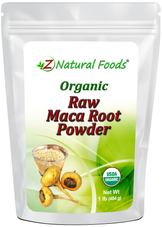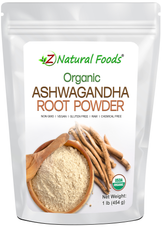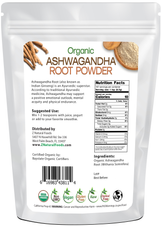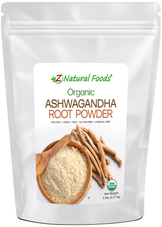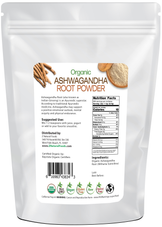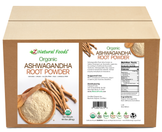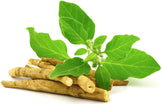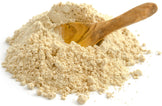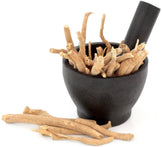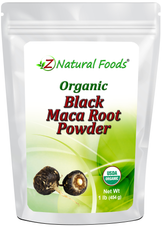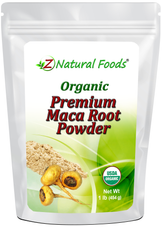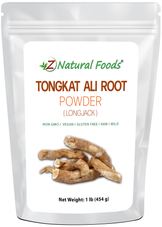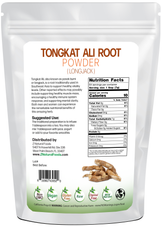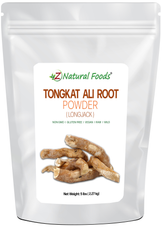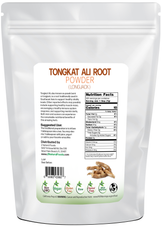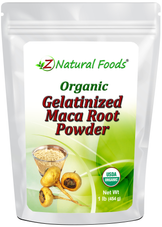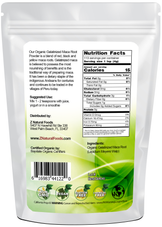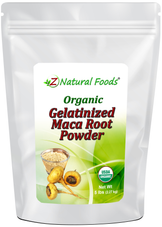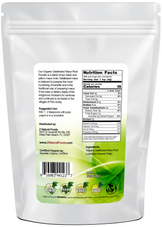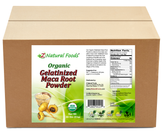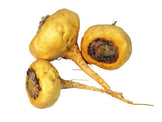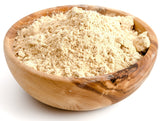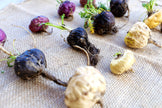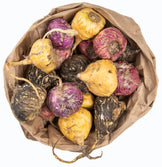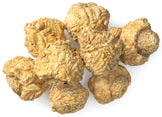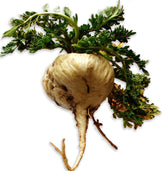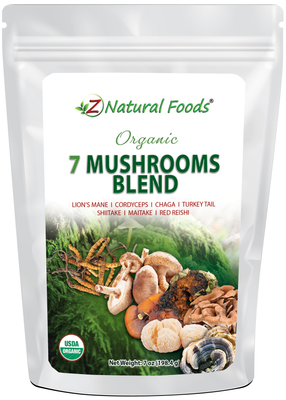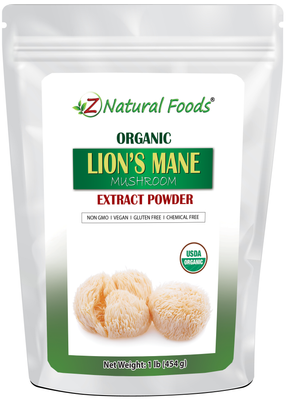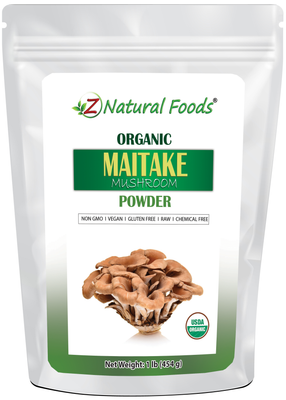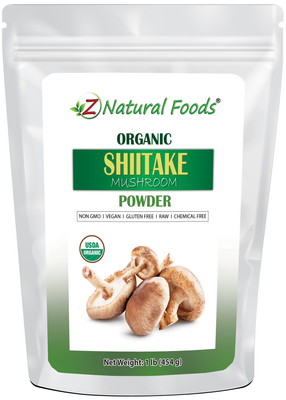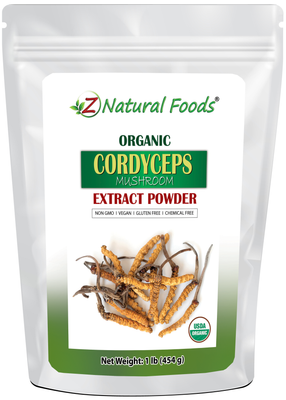Hi everyone, Mike Stuchiner, Master herbalist here with Z Natural Foods, and today's video is going to be discussing the topic of medicinal mushrooms and their potential relationship to being adaptogenic and having adaptogenic-like qualities. But before we get started, two quick mentions. One is if you'd like more information about me or you'd like to check out some of my other herbal medicine videos, you feel free to go to my YouTube channel at "A Master Herbalists' Perspective" (with an 's'). Number two is our medical disclaimer. The information you're about to receive is for educational purposes only and is not intended to treat, prescribe, or diagnose any specific or general medical condition. It should also not be used as a substitute for your primary healthcare provider's diagnosis, treatment protocol, or medical information. With that said, let's get started.
So, I guess to get the ball rolling in this video, it's important to understand that adaptogens have been shown to be a supportive tool for managing a healthy stress response through what are known as non-specific physiological responses. What makes all adaptogens unique is their ability to adapt to the harsh conditions in which they're grown. This adaptability allows them to thrive and become robust plants or fungal substances. As the research on adaptogens has been compiled over the years, herbalists and scientists have learned and concluded how each adaptogen's energy, warming, cooling, drying, moistening, and so on, and constituent balance has allowed them to be used in a more specific, targeted approach. Medicinal mushrooms contain a wide variety of nourishing compounds that work synergistically to support overall well-being. While all mushrooms have certain nutrient qualities in common, they also have unique attributes allowing them to support and uniquely focus on individual systems. Our mission is to answer your questions and provide a thorough explanation of the critical details to understand this topic. So today, I'm going to answer the question: What mushrooms are considered to be adaptogenic, if any at all?
Plants and fungi are often categorized based on their functional qualities. Unfortunately, many plants and fungi are called adaptogens, even though they don't often fulfill the criteria that define what makes an adaptogen. So, in order to answer this question thoroughly, it's essential to understand the requirements for how an adaptogen is defined and how they work. The following are the primary points that define what a plant or fungus must do to be considered an adaptogen. One, be non-toxic at clinical doses. Two, increase the resistance of hormonal and immune systems to all kinds of stressors through a non-specific physiological response. And three, normalize body function, no matter how external stressors have altered them.
One of the leading pioneers of stress research was a Canadian professor named Hans Selye, who was widely known for contributing to stress research and developing what is known as the General Adaptation Syndrome (GAS) concept in 1936. The syndrome has three primary stages of progression in the human stress response. Stage one is the alarm stage, which is the immediate reaction to a stressor, otherwise known as fight or flight. Stage two is the resistance stage, in which the body adapts to the external stressor. And stage three is the adrenal maladaptation or exhaustion phase, during which the stressor has been present for an extended period of time, and the body begins to struggle because it is drained of reserves. This is the stage that can lead to more significant issues if not resolved promptly, such as stroke, heart attack, and infection. But there's more. The author of the book "Adaptogens in Medicinal Herbalism" by Donald Yance, proposed the hypothesis that a fourth stage should be added to this General Adaptation Syndrome concept called "restore and revitalize." Based on his clinical experience and observations regarding the application of adaptogenic compound formulas that include companion antioxidants and their effects on the human stress response, stage four, according to Donald Yance, would be called "recovery and healing." He believes the value of these formulas for maintaining and restoring homeostasis lies in their ability to enhance the four Rs: recognize, respond, recover, and restore. His fourth stage hypothesis is that once you're back in an anabolic positive state where energy recovery occurs, all energy systems and networks must be fully restored to complete the revitalization process. Because many plants and fungi not considered true adaptogens can actually fulfill aspects of the original three criteria that we just went over, we have learned that what really makes plants and fungi an actual adaptogen is that they must work through one or both of the body's Master Control Systems. One would be known as the HPA axis (hypothalamic-pituitary-adrenal axis), which is a complex system of neuroendocrine pathways and feedback loops that support and maintain homeostasis response during chronic stress. This is the interface between the endocrine, nervous, immune, digestive, reproductive, and cardiovascular systems. The other is known as the SAS or the sympatho-adrenal system, AKA your fight or flight system.
So, the answer to the above question is that while many medicinal mushrooms have adaptogen-like qualities, only two of them can really be considered true adaptogens based on the above criteria. One is the Red Reishi mushroom. While the Reishi mushroom has been shown to be a true adaptogen, this powerful mushroom is well known and respected for a lot more. Reishi is known as the "mushroom of immortality" and has a long and well-documented history in traditional Chinese medicine because of its ability to potentially support a healthy aging process via nourishing what Chinese medicine calls the "Three Treasures." One, Jing (Essence), is primarily stored in the kidneys. Jing is one's constitution, regulates the body's growth and development, and works with Chi to protect the body from harmful external conditions. Poor constitution, blood loss, and excessive sexual activity can cause Jing Essence deficiencies. Two, Chi, life force or vital energy stored in the kidneys. Both the physical and emotional are manifested as Chi. The Chi in our body is derived from two sources: first, it's inherited from our parents, and the second is derived from external substances like food, air, and water. Together, Jing and Chi are believed to form the foundation for the third treasure known as Shen. Shen is the emotional and spiritual layer of our being that reflects the state of our nervous system. Shen lives in the heart and is said to preside over the activities that take place in the spiritual and mental plains. Because Shen lives in the heart, people with disrupted Shen may experience anxiety, stress, difficulty breathing, and insomnia. In some cases, the primary weakness is from the spleen, which cannot generate enough blood to nourish the heart and anchor the Shen.
A study examining Red Reishi mushroom extract's effects on a condition like chronic fatigue concluded that Reishi was significantly superior to the placebo with respect to clinical improvement in symptoms of this condition. Red Reishi comprises complex carbohydrates called water-soluble polysaccharides, terpenoids, proteins, and amino acids. Thanks to modern techniques of performing tissue cultures, we know that Reishi has around 16,000 genes that code for more than 200,000 compounds, and 400 are active constituents. Reishi could arguably be one of the greatest tonics on Earth and may support a healthy immune system response and liver function. The other mushroom is Cordyceps mushroom, researched for its ability to support vitality and performance, strengthen the body and mind, and support a healthy stress response. This elite-level Jing tonic and superstar of the mushroom world is categorized as an actual adaptogen and revered by tonic herbalists worldwide. Sweet in flavor and warm in temperature, Cordyceps is famous for nourishing both yin and yang, supporting kidneys and lungs, and supporting life capacity and life force reserves.
A double-blind placebo study using 28 individuals examined whether acute and chronic supplementation of Cordyceps improves tolerance to high-intensity exercise. One week of supplementation elicited no significant treatment interaction of VO2 max. After three weeks, VO2 max significantly improved. An analysis of 95 percent confidence intervals revealed significant improvement across the board, with additional improvement in VO2 max. It was concluded that acute supplementation of Cordyceps-containing mushroom blends may improve tolerance to high-intensity exercise. Greater benefits may be elicited with consistent chronic supplementation.
Finally, a study examining the effects of Reishi and Cordyceps on improving training conditions and outcomes concluded the following: After three months of supplementation, the testosterone-cortisol ratio changed statistically significantly, thereby protecting the athletes from what is known as non-functional overreaching and overtraining syndrome. Antioxidant activity was measured by quantifying the scavenging ability of the human serum on the synthetic free radical DPPH. After three months of fungal supplementation, the data demonstrated an increased scavenger capacity of free radicals in the athletes' serum after the race, thereby protecting athletes from oxidative stress.
In conclusion, while medicinal mushrooms all have similar general constituents, like a wide array of polysaccharides, attributes, and the ability to nourish in common, they are all unique in their own individual way. Medicinal mushrooms have a wonderfully rich usage history and are revered and respected worldwide as powerful tonics because of their nourishing qualities. Fungi have been and will continue to be the focus of research for years to come. The unique attributes, unlimited potential, and untapped information we continuously learn make the fungal world so intriguing. So, I hope that this was an educational video for you guys, and I hope you enjoyed it. This is Mike Stuchiner, Master Herbalist. I'll see you next time.






















